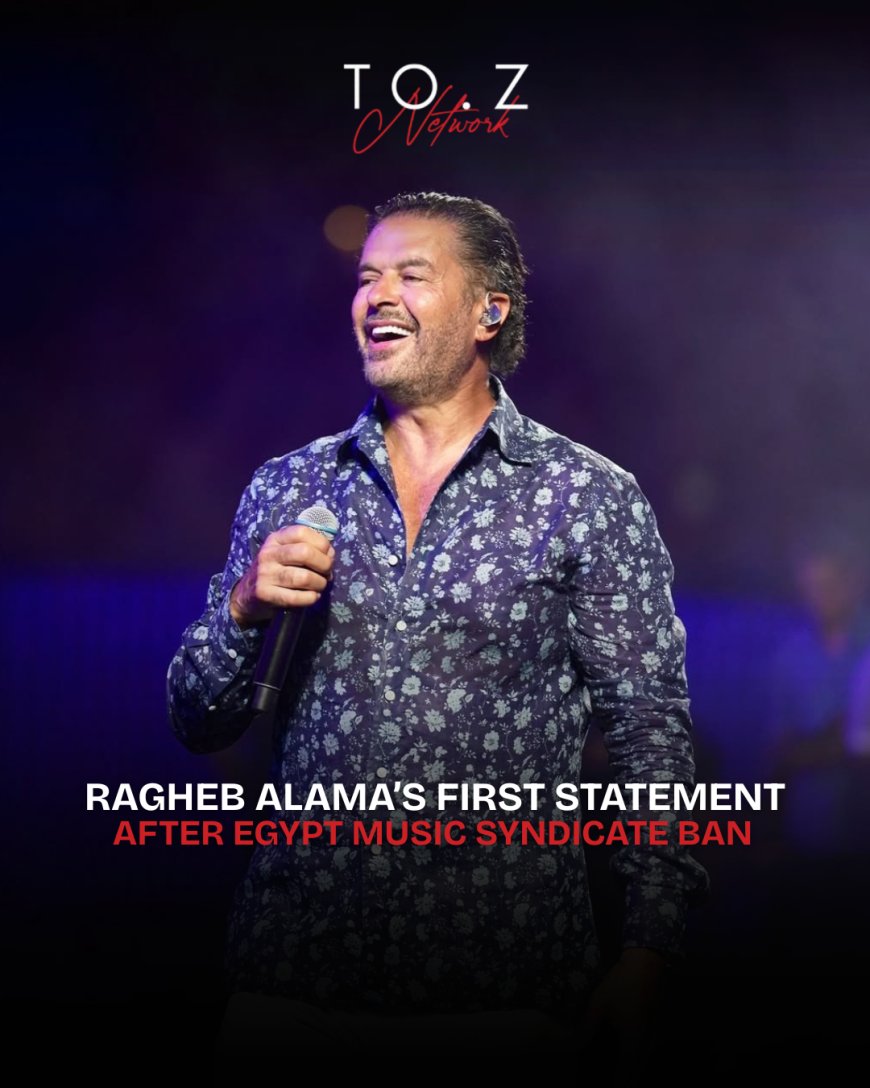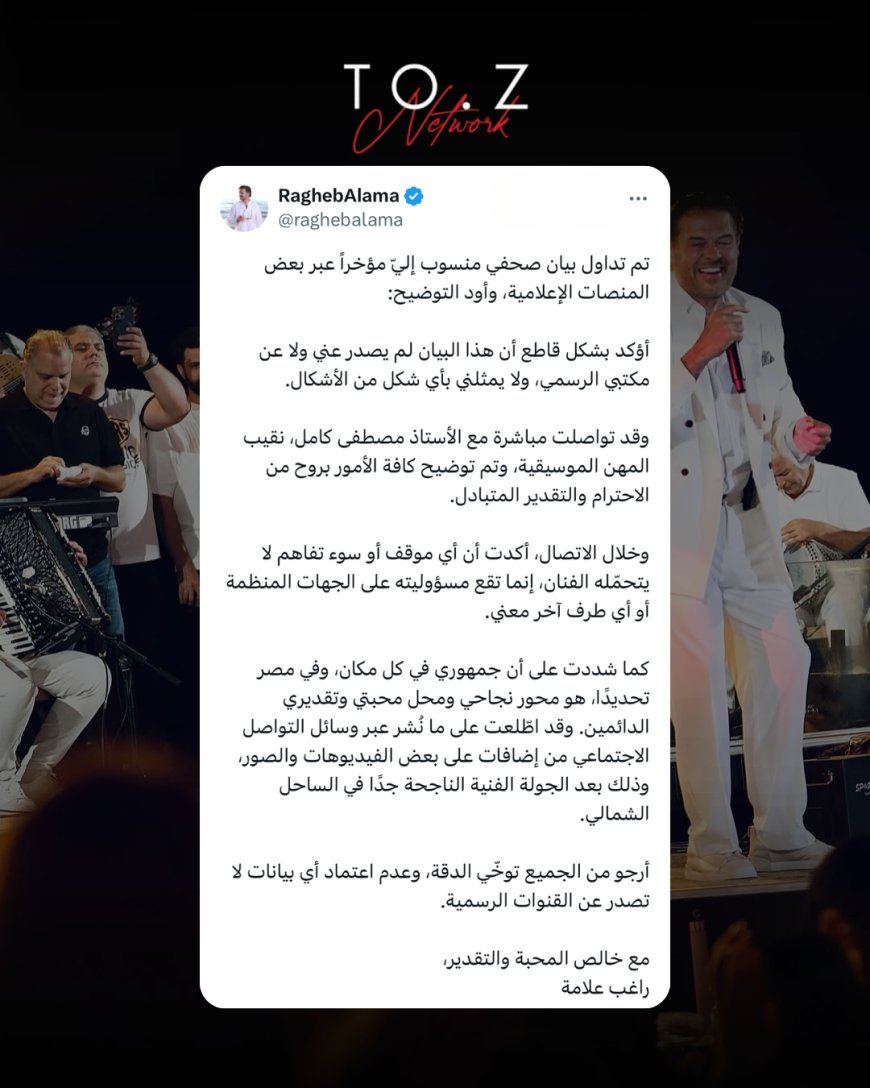Ragheb Alama Suspended by Egypt’s Musicians’ Syndicate Following Concert Controversy
Lebanese singer Ragheb Alama has been suspended from performing in Egypt over a controversial concert. The Musicians' Syndicate cited behavior that violated cultural norms, while Alama responded by clarifying the incident and reaffirming respect for his Egyptian audience.

Concert Sparks Controversy
Lebanese singer Ragheb Alama has been suspended from performing in Egypt by the Musicians’ Syndicate, following criticism surrounding his behavior at a recent North Coast concert. According to the Syndicate, the artist’s actions during the event were seen as incompatible with Egyptian customs and traditions, prompting a decision to summon him for an official investigation.
Referencing Musical Legacy and Cultural Norms
In its official statement, the Musicians’ Syndicate cited violations of public norms and referenced the importance of upholding the artistic standards set by legendary Egyptian performers such as Umm Kulthum and Abdel Halim Hafez. The move has stirred a public debate, with critics questioning the cultural criteria being enforced and what this decision means for artistic expression in Egypt.

Response from Ragheb Alama’s Camp
Khodr Alama, Ragheb’s brother and manager, clarified in a televised interview that they had not received any formal notification of the suspension or the scheduled investigation. The first time the artist’s team heard of the matter was reportedly through online reports and social media platforms.
Ragheb Alama’s Official Statement
In an Arabic statement shared across his platforms, Ragheb Alama denied issuing any press release attributed to him in the media. He confirmed speaking directly with Musicians' Syndicate head Mustafa Kamel to clarify the situation respectfully. Alama emphasized that any misunderstanding is the responsibility of event organizers, not the artist, and he reiterated his deep appreciation for his Egyptian audience. He also called on the public to rely only on official communication channels for verified new









